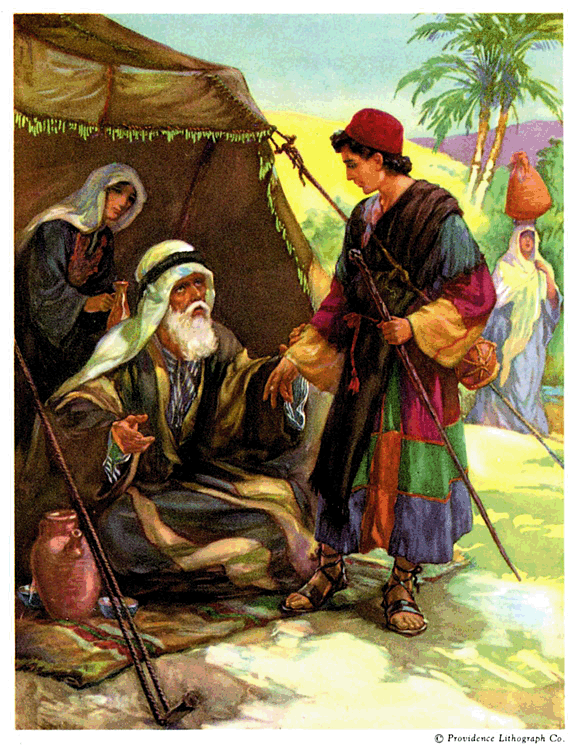Genesis 39:1, Down to Egypt…down there.

There are more than twenty references in the Bible to “going down to Egypt,” coming “up from Egypt” or words to this gist. Egypt can be taken as a biblical metaphor for the secular world and all that is in it that is in opposition to YHVH’s paths of righteousness. Egypt represents the low spiritual way of following the world, flesh and the devil that is evil that leads to death and separation from Elohim, while the Promised land, and specifically Jerusalem, is a metaphor for the spiritual high place of truth, righteousness and godliness that leads to eternal life. This is why the Bible speaks of “going down to Egypt” and “going up to Jerusalem.”
Each person has only two choices in life on how they will conduct their lives. They must make a choice—they will make a choice purposely or inadvertently. They can choose the proverbial downward path or the highway to hell or the upward path or the highway to heaven. Everyone chooses one path or another, even if they are not aware of the conscious decision to do so. To not make a choice is, by default, to choose the downward path.
Most people are somewhere in the middle, which is a vast grey area. They neither choose one path or the other. They choose just enough of the upward path to alleviate their guilt, but not enough of it to radically change their lifestyles. They still want enough of the downward path to satiate the lust of the flesh, the lust of the eyes and pride of life.
So what did Yeshua have to say about those who choose this wide, well-traveled middle road?
I know your works, that you are neither cold nor hot. I could wish you were cold or hot. So then, because you are lukewarm, and neither cold nor hot, I will vomit you out of My mouth. (Rev 3:15–16)
To those who find themselves on this path, Yeshua is standing outside of the door of their spiritual house and saying,
Behold, I stand at the door and knock. If anyone hears My voice and opens the door, I will come in to him and dine with him, and he with Me. (Rev 3:20)
To those who respond positively to his invitation, he promises them a place in the Promised Land of his everlasting kingdom or the New Jerusalem, which is coming down from heaven.
For here have we no continuing city, but we seek one to come. (Heb 13:14)
For he looked for a city which hath foundations, whose builder and maker is Elohim. (Heb 11:10)
Him that overcometh will I make a pillar in the temple of my Elohim, and he shall go no more out: and I will write upon him the name of my Elohim, and the name of the city of my Elohim, which is New Jerusalem, which cometh down out of heaven from my Elohim: and I will write upon him my new name. (Rev 3:12)
To him who overcomes I will grant to sit with Me on My throne, as I also overcame and sat down with My Father on His throne. (Rev 3:21)
And I John saw the holy city, new Jerusalem, coming down from Elohim out of heaven, prepared as a bride adorned for her husband. (Rev 21:2)
With this lofty heavenly, spiritual goal and reward in mind for those who continue here below in faithful obedience and overcoming perseverance, what should be our demeanor? What wise admonitions must we keep in mind, so that we will be faithful to the end—until the object of our faith arrives (Heb 11:1)?
Wherefore gird up the loins of your mind, be sober, and hope to the end for the grace that is to be brought unto you at the revelation of Yeshua the Messiah; as obedient children, not fashioning yourselves according to the former lusts in your ignorance: but as he which hath called you is holy, so be ye holy in all manner of conduct; because it is written, Be ye holy; for I am holy. And if ye call on the Father, who without respect of persons judgeth according to every man’s work, pass the time of your sojourning here [on earth] in fear: forasmuch as ye know that ye were not redeemed with corruptible things, as silver and gold, from your vain conversation received by tradition from your fathers; but with the precious blood of Messiah, as of a lamb without blemish and without spot: who verily was foreordained before the foundation of the world, but was manifest in these last times for you, who by him do believe in Elohim, that raised him up from the dead, and gave him glory; that your faith and hope might be in Elohim. Seeing ye have purified your souls in obeying the truth through the Spirit unto unfeigned love of the brethren, see that ye love one another with a pure heart fervently: being born again, not of corruptible seed, but of incorruptible, by the word of Elohim, which liveth and abideth for ever. (1 Pet 1:13–23, emphasis added)







